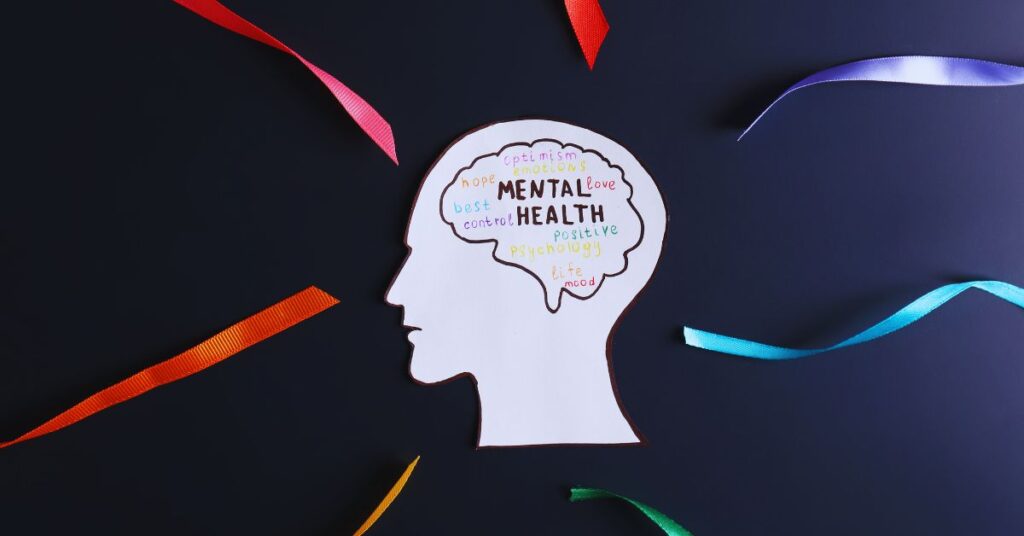Silent depression is a hidden struggle. It often goes unnoticed by others.
Silent depression is a type of depression where the person appears fine on the outside, but inside, they are battling deep emotional pain. Many people with silent depression mask their true feelings. They might smile and function well, making it hard for others to see their pain.
This hidden nature makes it difficult for them to seek help. Understanding silent depression is crucial. It allows us to recognize the signs and offer support to those suffering quietly. By learning about this condition, we can better help ourselves and others. Awareness is the first step towards healing.
Topic of Contents
ToggleSilent Depression Defined
Silent depression is a form of depression that is not always visible. Unlike typical depression, its symptoms are often masked. People with silent depression may appear fine on the surface. Inside, they struggle deeply. This makes it hard to recognize and diagnose.
Characteristics
Silent depression has unique characteristics. People with this type of depression hide their feelings. They might still perform daily tasks. But they lack joy and motivation. This creates a facade of normality.
Individuals may excel in work or studies. They often push themselves to avoid detection. This can lead to burnout. They also avoid discussing their feelings. This makes it harder for loved ones to notice. Their struggles remain hidden from view.
Symptoms
Identifying silent depression requires observing subtle symptoms. Here are some common signs:
- Persistent fatigue despite adequate rest
- Loss of interest in activities once enjoyed
- Difficulty concentrating or making decisions
- Changes in appetite or weight
- Feelings of worthlessness or guilt
- Sleep disturbances, such as insomnia or oversleeping
- Social withdrawal or isolation
These symptoms might be mild but persistent. They often go unnoticed by others. Recognizing these signs is crucial for early intervention. Silent depression can lead to severe consequences if left untreated.
Causes Of Silent Depression
Silent Depression can be hard to detect. Unlike typical depression, it often hides beneath the surface. Understanding its causes is key to offering help and support. Let’s explore the main factors that can contribute to silent depression.
Genetic Factors
Genetics play a significant role in silent depression. Family history of depression increases the risk. If your parents or siblings have depression, you may be more prone to it. Research shows that certain genes can affect mood and behavior. These genetic factors can make some people more vulnerable to depression.
Environmental Triggers
Environmental factors are also crucial in silent depression. Stressful life events can trigger it. Losing a loved one, job stress, or financial problems can lead to depression. Childhood trauma or abuse can have long-lasting effects. These experiences can shape how we handle stress later in life. Social isolation or lack of support can also contribute to silent depression. Feeling alone can intensify feelings of sadness and hopelessness.
Recognizing Silent Depression
Silent depression can be hard to spot. People with silent depression may not show obvious signs. Understanding the subtle clues is key. Below are some ways to recognize silent depression.
Behavioral Signs
- Changes in Sleep Patterns: They may sleep too much or too little.
- Loss of Interest: Activities once enjoyed are now ignored.
- Social Withdrawal: They avoid friends and family.
- Decreased Productivity: Work performance may decline.
- Neglecting Personal Care: Hygiene and appearance may suffer.
Emotional Indicators
- Persistent Sadness: They feel sad most of the time.
- Feelings of Worthlessness: They often feel useless or unimportant.
- Anxiety: They may feel anxious without a clear reason.
- Hopelessness: They see no positive future.
- Guilt: They feel guilty about things that are not their fault.
Recognizing these signs can help. You can support someone with silent depression. Be observant and compassionate.
Impact On Daily Life
Silent depression can deeply affect daily life. It often goes unnoticed by others. People with silent depression might not show typical symptoms. Yet, their internal struggle is very real. This hidden battle impacts various aspects of life, making it hard to function normally.
Work Performance
Work performance often suffers due to silent depression. Individuals might feel tired and unmotivated. They may struggle to complete tasks on time. Concentration becomes difficult. This leads to mistakes and lower productivity. Silent depression can also cause frequent absences from work. Co-workers might not understand the reason. This can create tension and misunderstandings.
Personal Relationships
Personal relationships are heavily impacted by silent depression. People may withdraw from friends and family. They avoid social activities. This isolation can strain relationships. Loved ones may feel neglected or confused. Communication problems arise. This makes it hard to maintain healthy connections. Trust and intimacy can suffer.
| Aspect | Impact |
|---|---|
| Work Performance | Low motivation, poor concentration, frequent absences |
| Personal Relationships | Isolation, communication issues, strained connections |
Recognizing silent depression is crucial. It allows for proper support and treatment. This can help improve both work performance and personal relationships.
Coping Mechanisms
Dealing with silent depression can be challenging. Finding the right coping mechanisms is crucial to manage and improve mental health. Below, we explore some effective strategies to cope with silent depression.
Healthy Habits
Maintaining healthy habits is essential for managing silent depression. These habits can help improve mood and overall well-being. Here are some key practices:
- Regular Exercise: Engages the body, releases endorphins, and reduces stress.
- Balanced Diet: Eating a variety of nutritious foods supports brain function.
- Consistent Sleep: Quality sleep helps regulate mood and energy levels.
Implementing these habits can have a positive impact on mental health. Each small step counts.
Support Systems
Building strong support systems is vital in coping with silent depression. Connecting with others can provide emotional relief and practical help. Consider these options:
- Friends and Family: Reach out to close ones for support and understanding.
- Support Groups: Join groups with people facing similar challenges.
- Professional Help: Therapists and counselors can offer guidance and treatment.
Support systems can make a significant difference. They provide a sense of belonging and reduce feelings of isolation.
Treatment Options
Silent depression, also known as high-functioning depression, is a form of depression where individuals appear to function normally. Despite their outward appearance, they experience deep inner turmoil. Understanding the treatment options can help manage silent depression effectively.
Therapy
Therapy plays a crucial role in treating silent depression. Cognitive Behavioral Therapy (CBT) helps change negative thought patterns. CBT teaches coping strategies and problem-solving skills. Another effective therapy is Interpersonal Therapy (IPT). IPT focuses on improving relationships and communication. Both therapies provide support and guidance. They help individuals understand their depression and find ways to cope.
Medication
Medication can also be an essential part of treatment. Antidepressants are commonly prescribed. Selective Serotonin Reuptake Inhibitors (SSRIs) are popular choices. They help balance brain chemicals. This can improve mood and reduce symptoms. It’s important to follow the doctor’s guidance. Medication should be combined with therapy for the best results. Always consult a healthcare professional before starting any medication.
Role Of Loved Ones
Loved ones play a crucial role in supporting those with silent depression. Their presence and understanding can make a significant difference. People with silent depression often hide their struggles. They may not show typical signs of depression. Loved ones need to be aware and supportive.
Providing Support
Support from loved ones can help immensely. Here are some ways to provide support:
- Listen actively: Give them your full attention. Let them talk without interrupting.
- Show empathy: Understand their feelings. Validate their emotions.
- Be patient: Recovery takes time. Patience is key.
- Offer help: Assist with daily tasks. Small gestures can mean a lot.
Active listening and empathy are essential. They need to feel heard and understood. Simple acts of kindness and patience can have a big impact.
Encouraging Treatment
Encouraging treatment is vital. People with silent depression may not seek help. Loved ones can encourage them to get professional help. Here are some steps to encourage treatment:
- Suggest therapy: Therapy can provide professional support.
- Recommend a doctor: A doctor can diagnose and treat depression.
- Offer to accompany them: Go with them to appointments for support.
- Share resources: Provide information on mental health resources.
Support them in seeking treatment. Suggest therapy or a visit to a doctor. Offer to accompany them for moral support. Sharing mental health resources can also be helpful.
Breaking The Stigma
Silent depression is often misunderstood or ignored. It affects many people. They suffer quietly, afraid to seek help. This is due to the stigma around mental health. Breaking this stigma is crucial. It encourages people to talk about their feelings. This can lead to healing and support.
Raising Awareness
Raising awareness about silent depression is vital. Many do not know they have it. They might think they are just feeling sad or tired. Educating people can help them recognize the signs. This can lead to early intervention. Use social media, blogs, and community events. Share information about what silent depression is. Explain how it affects people. Highlight the importance of mental health.
| Signs of Silent Depression | Possible Actions |
|---|---|
| Constant fatigue | Encourage rest and self-care |
| Loss of interest in activities | Suggest new hobbies |
| Changes in sleep patterns | Maintain a regular sleep schedule |
Promoting Open Conversations
Open conversations can reduce the stigma of silent depression. Talking about mental health should be normal. It is not a sign of weakness. Encourage friends and family to speak up. Share your own experiences if you feel comfortable. This can create a supportive environment. People will feel less alone. They will be more likely to seek help.
- Listen without judgment.
- Acknowledge their feelings.
- Offer support and understanding.
Breaking the stigma around silent depression is a shared responsibility. Awareness and open conversations are key. Together, we can make a difference.
Frequently Asked Questions
What Is Silent Depression?
Silent depression is a form of depression where individuals hide their symptoms. They may appear happy and functional. However, inside, they struggle deeply with feelings of sadness and emptiness.
What Are Silent Depression Symptoms?
Symptoms include persistent sadness, fatigue, irritability, and difficulty concentrating. Individuals may also withdraw from social activities. They often mask their emotions, making it hard for others to notice.
How To Identify Silent Depression?
Identifying silent depression involves observing changes in behavior and mood. Look for signs of withdrawal, irritability, and changes in sleep patterns. Professional diagnosis is crucial.
Can Silent Depression Be Treated?
Yes, silent depression can be treated. Treatment options include therapy, medication, and lifestyle changes. Seeking help from mental health professionals is essential for effective management.
Conclusion
Silent depression can be challenging to identify. It often goes unnoticed. Understanding its signs is crucial. Early recognition can lead to better support and treatment. Encourage open conversations about mental health. This helps reduce the stigma. If you or someone you know shows symptoms, seek help.
Mental health is important. Silent depression is real and needs attention. Stay aware and supportive. Your awareness can make a difference.







